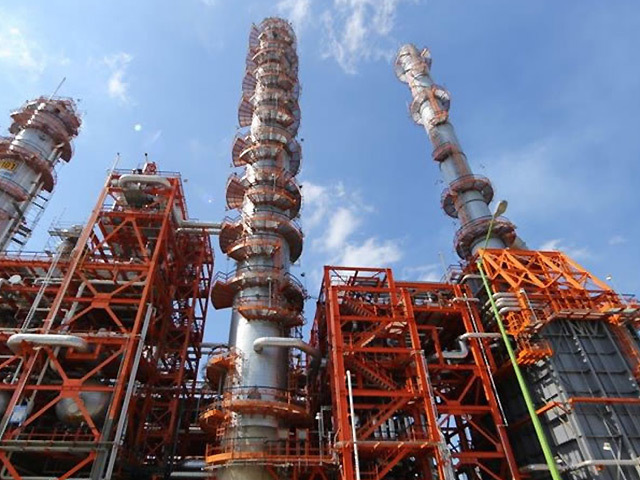
Petroleos Mexicanos is looking to strengthen its balance sheet with the sale of a stake in Repsol SA for about $3billion as Mexico’s state-owned producer prepares to form partnerships with foreign oil companies.
Pemex, as the Mexico City-based company is known, is selling a 7.9% stake in Repsol, according to a Citigroup Inc. filing to the Spanish stock exchange yesterday. Citigroup and Deutsche Bank AG are conducting the sale. Repsol shares were suspended from trading in Madrid until at least 10am local time, the Spanish regulator said.
The Mexican company is raising cash from the sale as lawmakers prepare regulations to open the oil industry to foreign investment for the first time since 1938. Pemex was “very disappointed” in Repsol’s performance, Chief Executive Officer Emilio Lozoya said in an Oct. 31 interview.
“If Pemex is going to be restructured as a new company, it needs a nest egg of capital in its balance sheet,” George Baker, an energy consultant in Houston, said in a telephone interview. “This money is headed towards Pemex’s balance sheet to give it market credibility.”
The Repsol shares are being offered at EUR20.1 to EUR20.865 each, valuing the stake at about EUR2.2billion ($3billion).
Pemex is pledging not to sell more stock for 60 days. The state company owns 9.2% of Repsol.
Repsol spokesman Kristian Rix in Madrid declined to comment. Pemex’s press office in Mexico City didn’t have an immediate comment on the sale when contacted.
Reducing the stake would be “not a bad idea,” Mexican Finance Minister Luis Videgaray said May 4 in an interview with Radio Formula. Pemex could “bring that capital and invest it in the opportunities that Pemex is going to have in Mexico,” he said at the time.
An end to Mexico’s state oil monopoly would bring in an additional $20billion of foreign investment a year, according to Bank of America Corp. Chevron Corp., the third most valuable oil producer, said last month that it has been in talks with Pemex about potential partnerships in onshore, shallow and deep water fields, according to Ali Moshiri, Chevron’s president of Latin America and Africa.
“If Pemex is going to go out and look for a joint venture with Chevron in deep water Gulf of Mexico, they are going to want to know that Pemex has the resources to back up the commitments involved in that type of project,” Baker said.
Pemex may not have the financial, technical or operational capabilities required to maintain all the fields it wants to keep, Lourdes Melgar, Mexico’s deputy energy minister, said in March. Pemex’s limitations will be considered by the ministry when awarding fields with potentially large amounts of oil reserves, Melgar said. The country’s oil regulator will decide by September which fields Pemex can keep.
Repsol’s growth plans were distracted by its feud with YPF SA after Argentina seized control of YPF from the Madrid-based company in 2012, Pemex’s CEO said in October. The stake “has returned zero” under the current administration, he told a congressional energy committee on Nov. 20.
Pemex, which has expressed interest in working with YPF to develop shale deposits in Argentina, helped broker a preliminary compensation accord between Repsol and YPF that led to a binding deal earlier this year. Repsol received and then sold about $5billion in bonds from Argentina in May from the compensation.
Repsol’s stock has returned investors 100% in dollar terms since CEO Antonio Brufau took the helm in 2004, compared with a 150% average gain among peers tracked by Bloomberg in the same span.
The stock is up 14% this year.